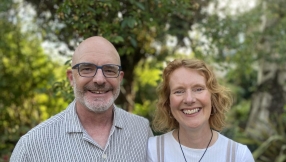ElBaradei set to defend Iran progress at IAEA meet
Mohamed ElBaradei will address the International Atomic Energy Agency's Board of Governors in a debate on whether Iran's compliance so far with a plan to resolve questions about its nuclear development is cause for new hope or further scepticism.
It will be a matter of interpretation. Western board members will dwell on Iran's defiant campaign to enrich uranium despite the transparency plan, diplomats said, while developing nations will highlight Iranian steps towards openness and warn against rising Western pressure they feel could undo the process.
The West fears Iran is covertly trying to build atom bombs. Iran says it wants to get electricity from uranium enrichment.
Iran's top nuclear negotiator Saeed Jalili said on Thursday he would meet EU foreign policy chief Javier Solana on November 30. The outcome could decide whether Iran will face wider sanctions soon for pursuing nuclear power.
ElBaradei, concerned by U.S.-led criticism of the transparency plan's limitations and resolve to isolate Iran with harsher sanctions, is likely to stress the plan is on track and warrants full support, a U.N. official said.
"He's likely to say that whatever the imperfections, the plan is proceeding according to schedule and the timeline to resolve outstanding questions by around the end of the year remains realistic," the official told Reuters.
He said Iran had provided more information in two months, clarifying how it obtained whatever it needed to build enrichment centrifuges from a black market run by the father of Pakistan's atom bomb, than it had in two years of stonewalling.
"STICK WITH PLAN"
"ElBaradei wants to get across (to the West) that Iran has shown real willingness to cooperate and we are making important progress, so let's stick with it," the official said.
ElBaradei may also say Iran must intensify cooperation resolve even more difficult issues.
These involve explanation of traces of highly enriched -- or bomb-grade -- that uranium inspectors found at research sites. Intelligence has also suggested links in Iran between uranium processing, explosives tests and a missile warhead design.
Iran has said the IAEA report showed it had been truthful about its nuclear course and any further sanctions steps would be "illegal" and undermine its rapprochement with the IAEA.
However, the U.N. watchdog report said Iran was still preventing inspector movements aimed at checking the nature and scope of its current enrichment-related activity.
Iran is also expanding enrichment towards industrial scale, the report said, defying U.N. demands to suspend the work until it can better show its declared civilian atomic energy programme is not a facade for mastering nuclear bomb technology.
Remarks to the two-day IAEA board by six world powers dealing with Iran's nuclear dossier will hint at their positions in coming deliberations about whether to seek wider sanctions soon against Tehran and how tough they should be.
The United States and key allies France, Britain and Germany were expected to commend IAEA progress in illuminating Iran's past, but say Iran was not meeting a broad "litmus test" requiring full disclosure of present activity and a suspension.
Without this, Washington, Paris and London say there is little choice but to increase U.N. Security Council sanctions.
Russia and China were likely to cast the IAEA's report in a more positive light and warn against disrupting it. Both have blocked tougher sanctions, calling them counterproductive, but have pressed Iran harder to be open and halt enrichment.













